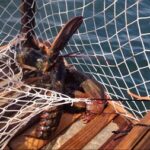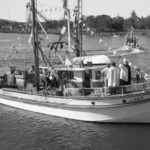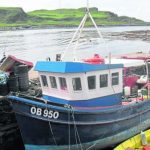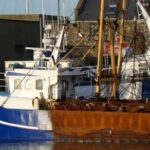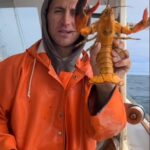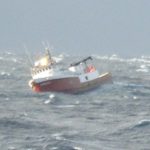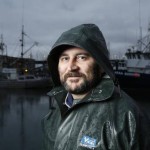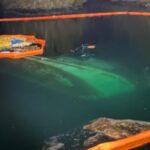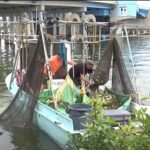Daily Archives: August 22, 2018
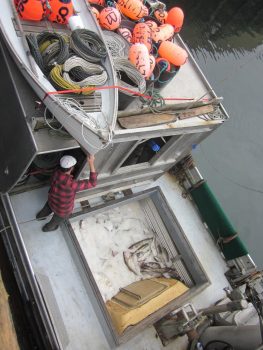
Study investigates shortcoming of ITQ systems for fisheries
Individual transferable quota systems for fisheries around the world may be ideal for some fisheries, but they can exclude rural, indigenous, low-income and next-generation fishermen from the industry, according to a new paper co-authored by a University of Alaska Fairbanks professor. “ITQs are being advocated across the board without much reflection on what individual fisheries need,” said College of Fisheries and Ocean Sciences professor Courtney Carothers. “ITQs might work well for some big industrial fisheries, but, for small-scale fisheries, they’ve had lots of negative consequences.”>click to read< 21:52
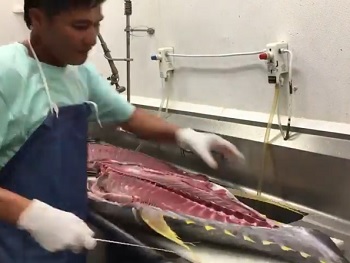
Practice, confidence key to breaking down a fish
I stepped tentatively into the fish-cutting arena guided by the patient, capable Ashley Watts, owner and operator of Local I‘a, which purchases fish from Oahu small-boat fishermen and sells them direct to restaurants and retail customers. Watts reaches the public via farmers markets and through a subscription program called a CSF, or community-supported fishery. Before taking me to the cutting board, Watts arranged for us to watch a master fish cutter at work. Talk about mastery of a craft. Self-taught Rodel Agonoy, who has been breaking down fish for 13 years, tackled a 110-pound yellowfin ahi caught by Kekoa Seward of Hawaii Kai, separating the meat from the spine and quartering it into giant fillets in about 3-1/2 minutes. Video, >click to read<21:10
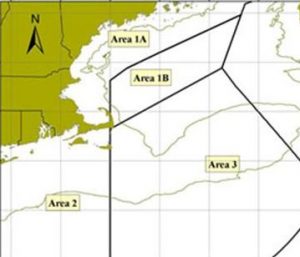
NOAA/NMFS – Reducing the Sub-Annual Catch Limits for Atlantic Herring Management Areas 1A, 1B, 2, and 3
These reductions go into effect today (August 22, 2018), and are based on the most recent stock assessment, which shows that the herring stock is in decline due to historic lows in recruitment over the past five years. To prevent overfishing in 2018, the new Management Area sub-ACLs are as follows: >click to read<16:33
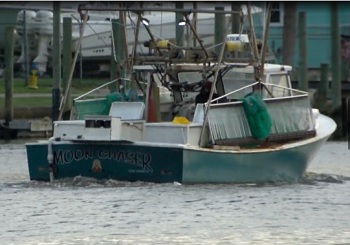
Pasco shrimpers’ incomes cut by red tide
The red tide crisis is hitting home for Pasco County shrimpers. They worry their way of life could be coming to an end. With dead fish washing ashore by the truckload, the demand for bait shrimp is shrinking. It comes down to a drop in demand. Bait shops aren’t buying bait shrimp in the red tide zones. And sport fishermen are staying away. That means, they’re not buying what fishermen catch. The shrimp is not the kind you see on your plate, it’s the kind other fishermen use to catch fish. Video >click to read<14:22
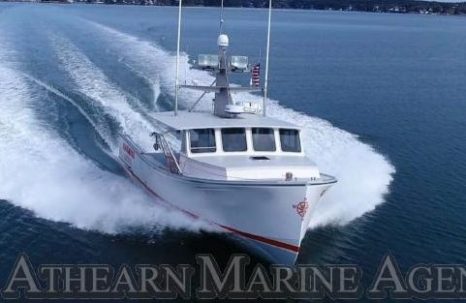
Athearn Marine Agency Boat of the Week: 46′ Mussel Ridge Lobster/Tuna, 750HP John Deere, Northern Lights-9 KW Aux.
Specifications, information and 10 photos >click here< To see all the boats in this series, >click here<12:25

Wrong man in prison for 2009 murder?
Only two people know what really happened on the July 2009 night when 52-year-old fisherman John Adkins was murdered at the Port of Ilwaco. His deckhand Walter Bremmer moved to Hawaii within days, then negotiated full immunity in exchange for his testimony. His business partner Erin Rieman pleaded guilty to manslaughter and went to prison for 11 years. It seemed like a closed case until 2012, when Bremmer murdered his neighbor Robert “Johnny” Leong using the same unusual method that was used to kill Adkins. With Bremmer in prison, Rieman appealed his case over and over, saying he only took the fall because Bremmer threatened to kill his girlfriend, daughter and grandkids.,, Recently, a federal magistrate concluded Rieman’s crazy story just might be true. >click to read<
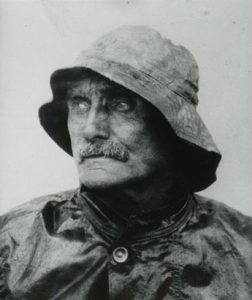
Newfoundland word of the day: Linkum (and where it comes from)
Here is what the Dictionary of Newfoundland English says about the word: lincoln n also linkum. A fisherman’s oilskin hat with elongated flap at the back; CAPE ANN, SOU’WESTER.,, Waterproofed cloth garments were used in the North Atlantic from the late 1700s, and what we think of today as the oilskins worn by sailors and fishermen were originally made from sailcloth coated with tar. Traditional black or “tarred” Sou’Wester hats were developed in the 1800s, but replaced the tar with linseed oil and lampblack. Scottish chemist Charles Macintosh patented a method in 1823 for binding two pieces of material together with rubber dissolved in naphtha,,, >click to read<10:24
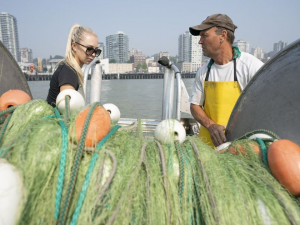
Father-daughter fishing tradition thrives with solid sockeye run on the Fraser
Each summer since she was four years old, Kirsten Jantunen has cherished days on the boat with her dad Roy, 55, helping work on the net, pick fish, drive, and whatever else a fisherwoman can do.
The 28-year-old realtor and owner of a uniform company keeps a packed schedule, but each season since her teenage years she has set aside time for fishing with her dad. She plans to keep the tradition going for the foreseeable future, she said Tuesday, in the middle of a sockeye opening in the Lower Fraser River.>click to read<08:59
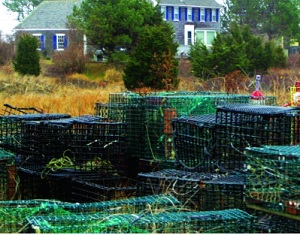
An Anti-Fishing Town? Home Storage Of Fishing Gear Dredged Up Anew
“Fishing has always been an important industry in Orleans,” Orleans Planning Board vice chair Chet Crabtree said Aug. 14. “We don’t want to discourage those who fish. On the other hand…there are people who have multiple boats and lobster pots stacked up quite high in the face of neighbors. I’ve heard complaints from other homeowners.” The town has not been aggressive in requiring special permits for such storage, and some may have “abused that laxness,” Crabtree said. >click to read<08:20

































